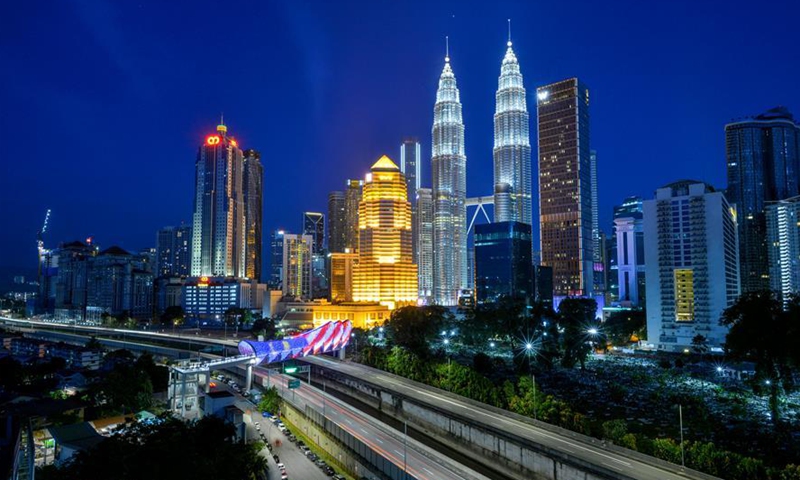Closer cooperation between China and Malaysia could help boost the revival of Kuala Lumpur-Singapore high-speed rail project, Chinese experts said on Tuesday, after a senior Malaysian official said there could be further discussion with China on the project.
Xu Liping, director of the Center for Southeast Asian Studies at the Chinese Academy of Social Sciences, told the Global Times that some form of bilateral commitment may emerge after the visit by Malaysian Prime Minister Datuk Seri Anwar Ibrahim.
Malaysian Transport Minister Anthony Loke, before the visit, said in an interview with local media outlet sinchew.com that he will use the visit to discuss with Chinese officials fostering the existing partnership and exploring new ones and that China is interested in the Kuala Lumpur-Singapore HSR and talks on future cooperation will be held.
But Xu said it is unlikely that the three countries – China, Singapore and Malaysia – could reach a statement over the railway, regarding expectations that the visit by Singapore’s Prime Minister Lee Hsien Loong and Malaysian PM to China may produce a trilateral agreement on the rail project that was in motion between 2016 and 2021.
Before the project was terminated by Singapore and Malaysia, companies from multiple countries were set to be involved, with each company taking on one section or specific aspect via an open tender process.
China has been working with Malaysia on the East Coast Railway Link, a flagship Belt and Road project in the region.
Xu said if the Kuala Lumpur-Singapore HSR is revived, China could play a key part, with its advantages in project delivery, cost and proven technology.
Still, Xu said the project is more likely jointly undertaken by firms from a number of countries, with companies from EU and Japan all expressing interest in it.
The HSR would reduce travel time between Singapore and Kuala Lumpur from several hours to half an hour.
However, Sun Zhang, a railway expert from Shanghai Tongji University, told the Global Times on Tuesday that a trilateral announcement concerning the HSR could not be entirely ruled out as all parties have something to gain from the project, and China may push for its revival.
“The two countries had some ‘awkward’ moments over the collapse of the original HSR deal but they all want to seek further connectivity,” Sun said. “From the Chinese perspective, it would be good if connectivity with Southeast Asia could be further improved.”
Having the project would mean the two countries potentially become connected with Europe via rail linkage which is more flexible than sea-borne trade, Sun said.
The China-Laos Railway entered operation in December 2021 and has turned land-locked Laos into a land-linked hub with freight train service bringing goods to countries including Laos, Thailand, Myanmar, Malaysia, Cambodia, Vietnam, Bangladesh and Singapore.
Jakarta-Bandung High-Speed Railway, China’s first HSR technology export, is set to be operational in the middle of this year. In Thailand, the construction of the second leg of the Trans-Asian Railway is progressing well.
Reference : https://www.globaltimes.cn/page/202303/1288110.shtml

